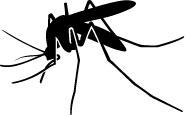PHA offers advice on malaria prevention

Malaria is a serious, sometimes fatal, disease spread by mosquitoes. It is common in many tropical countries and is caused by a parasite called Plasmodium.
There are four types of Plasmodium parasites: Plasmodium falciparum, vivax, malariae, and ovale and they are all carried by night-biting Anopheles mosquitoes.
Malaria is found in tropical regions of the world, including large areas of Africa, Asia, Central and South America, Haiti and the Dominican Republic, parts of the Middle and Far East and some Pacific Ocean Islands, such as Papua New Guinea. Every year around 1600 people from the UK develop malaria either when they are abroad or soon after returning to this country.
There are two main ways of avoiding malaria and it is important to follow BOTH of them. These are taking malaria prevention tablets and avoiding mosquito bites.
Malaria prevention tablets.
There are many different malaria prevention tablets and it is very important to take the right ones for the area that you are visiting. These tablets often have to be started a week or two before going to the malaria area so it is important to make an appointment to see your GP or travel clinic well before you go (preferably 6 weeks). It is also extremely important that the tablets are taken after you leave the malaria area – some have to be taken up to 4 weeks after leaving the area. One of the most common reasons for people developing malaria is that they stop taking their tablets too soon. So always follow the instructions given to you for your tablets.
No tablets are 100% effective which is why it is also very important to follow the advice on avoiding mosquito bites.
Avoiding mosquito bites.
There are several ways of avoiding mosquito bites.
Behaviour
Many types of mosquitoes bite between dusk and dawn, so being indoors during these hours can reduce the number of bites.
Insect repellent
There are many types of repellent, but evidence shows that products containing the chemical DEET are the most effective. DEET is available in several strengths suitable for use on skin. Research shows 20% DEET repellents offer protection for up to 3 hours. Higher concentrations give longer-lasting protection, with some 30% DEET repellents providing protection for up to 6 hours. There is no need to use a repellent stronger than 50% DEET. The length of protection is affected by conditions such as heat, humidity and amount of sweating.
DEET-containing preparations should not be used in babies younger than 2 months of age. They may be used in concentrations up to 50% in pregnant or breast-feeding women, and in infants and children older than 2 months. Manufacturers in the UK have applied their own age restrictions on use of DEET, however, there is no evidence to show that the use of DEET in infants and children older than 2 months causes harm and so its use can be recommended. Nevertheless, particular care should be taken with children to ensure they are not able to ingest repellent, and that it does not come into contact with their eyes or mouth.
Repellents need to be reapplied at regular intervals, especially after swimming and in hot, humid countries, when they can be removed by sweating.
Clothing
When travelling in areas with malaria, wear loose-fitting long trousers and long sleeves in the evenings, as the mosquitoes that carry malaria are most active at this time.
Mosquitoes can bite through tight clothing, so wear loose fitting clothing.
Clothing can be treated with permethrin, a contact insecticide which will kill insects. Permethrin is available in formulations designed to be sprayed on to clothes.
Screening and mosquito nets
Travellers who will be staying in basic accommodation without screening or air conditioning should sleep under a mosquito net to avoid being bitten at night.
Nets should be impregnated with permethrin; most nets are bought already treated prior to purchase. Generally nets will need to be impregnated with permethrin again after six months of use.
Permethrin is a contact insecticide, which will kill insects landing on the net and therefore increase effectiveness.
Carry a small sewing kit so that repairs can be made if the net develops a hole.
Knock down sprays
These can be used before you go to bed, to rid bedrooms of insects.
Plug-in devices which release an insecticide vapour are also available.
Insecticide coils should only be burnt in well-ventilated areas and can be useful for campers. A small piece of coil lit under the table can be a deterrent when eating at outdoor restaurants in the evenings.
Contact the PHA press office: 028 9031 1611.
More information about malaria is available at: www.nathnac.org/travel/factsheets/malaria.htm
